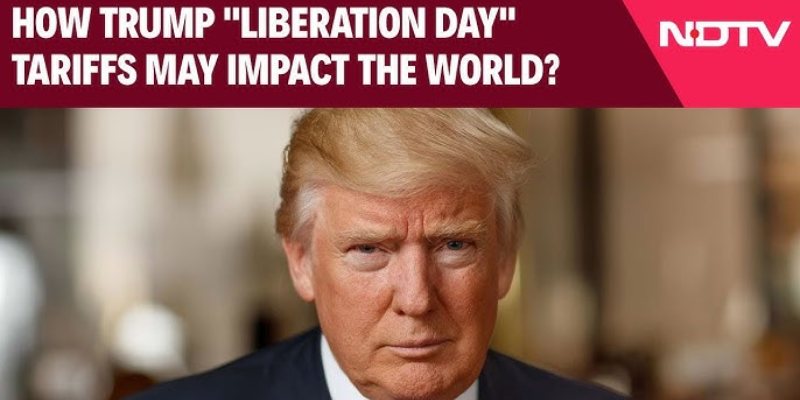Washington, April 3, 2025 – President Donald Trump unveiled a sweeping set of reciprocal tariffs during his much-anticipated “Liberation Day” address, sending shockwaves through global financial markets. The new trade policy imposes a baseline 10% tariff on all imported goods starting April 5, with steeper duties—up to 25% or more—targeting specific nations, particularly China, effective April 9.
The announcement triggered an immediate market reaction, with Bitcoin plunging alongside tech stocks as investors braced for the fallout of a potential trade war. Analysts warn that the tariffs could disrupt global supply chains, inflate consumer prices, and push the world economy toward recession.
Under the new policy, the baseline 10% tariff applies universally, while reciprocal rates escalate based on trade imbalances. China faces an additional 34% tariff on top of an existing 20%, bringing the total to a staggering 54%. However, exemptions have been carved out for key commodities like copper, pharmaceuticals, semiconductors, lumber, gold, and energy products.

International response was swift and critical. China vowed retaliatory measures, while the European Union signaled preparations to counter the tariffs. Canada and Mexico, bolstered by the USMCA trade agreement, will dodge some of the reciprocal duties but still face separate tariffs tied to fentanyl-related concerns.
Economists predict the measures will hit American consumers and businesses hardest, with rising costs for everyday goods. “This could unravel years of supply chain stability,” said Dr. Emily Carter, a trade expert at Georgetown University. “The ripple effects may be felt for decades.”
The White House defends the tariffs as a bold step to level the playing field for American workers. “We’re taking back control of our economy,” Trump declared, framing the policy as a cornerstone of his “America First” agenda.
As markets reel and nations prepare their next moves, the world watches to see if Trump’s gamble will reshape global trade—or spark an economic crisis.

